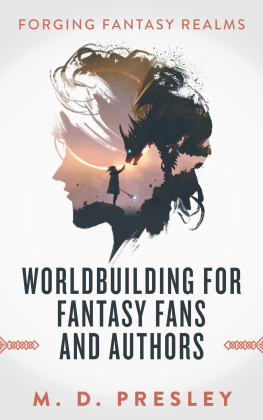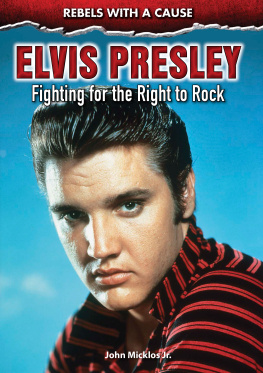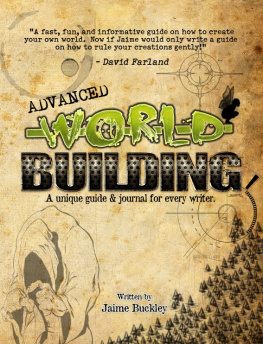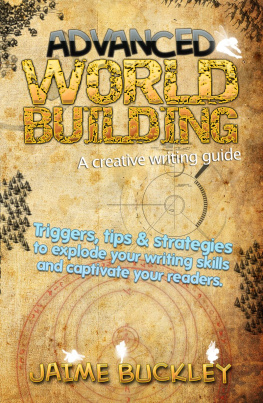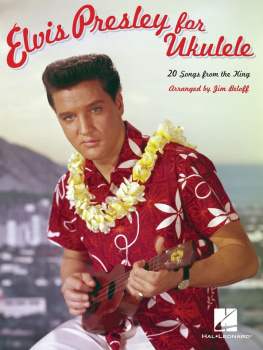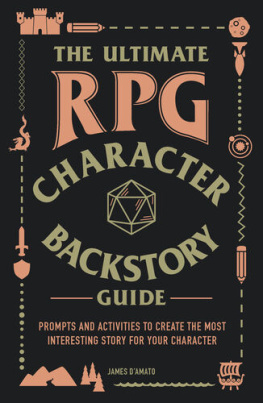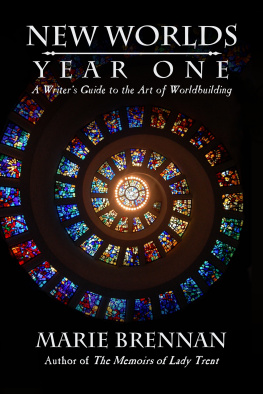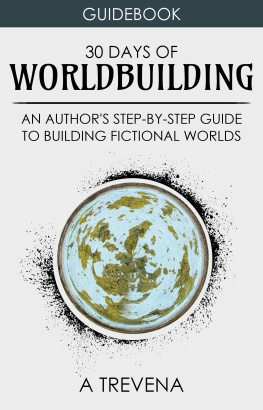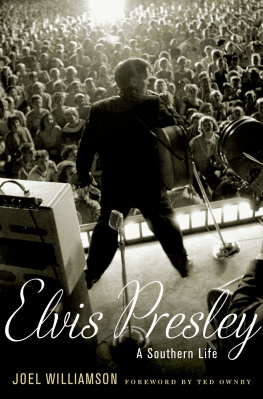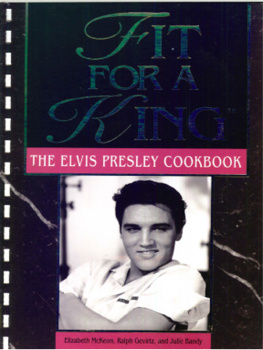M. D. Presley - Worldbuilding for Fantasy Fans and Authors
Here you can read online M. D. Presley - Worldbuilding for Fantasy Fans and Authors full text of the book (entire story) in english for free. Download pdf and epub, get meaning, cover and reviews about this ebook. genre: Art / Romance novel. Description of the work, (preface) as well as reviews are available. Best literature library LitArk.com created for fans of good reading and offers a wide selection of genres:
Romance novel
Science fiction
Adventure
Detective
Science
History
Home and family
Prose
Art
Politics
Computer
Non-fiction
Religion
Business
Children
Humor
Choose a favorite category and find really read worthwhile books. Enjoy immersion in the world of imagination, feel the emotions of the characters or learn something new for yourself, make an fascinating discovery.
- Book:Worldbuilding for Fantasy Fans and Authors
- Author:
- Genre:
- Rating:5 / 5
- Favourites:Add to favourites
- Your mark:
- 100
- 1
- 2
- 3
- 4
- 5
Worldbuilding for Fantasy Fans and Authors: summary, description and annotation
We offer to read an annotation, description, summary or preface (depends on what the author of the book "Worldbuilding for Fantasy Fans and Authors" wrote himself). If you haven't found the necessary information about the book — write in the comments, we will try to find it.
Worldbuilding for Fantasy Fans and Authors — read online for free the complete book (whole text) full work
Below is the text of the book, divided by pages. System saving the place of the last page read, allows you to conveniently read the book "Worldbuilding for Fantasy Fans and Authors" online for free, without having to search again every time where you left off. Put a bookmark, and you can go to the page where you finished reading at any time.
Font size:
Interval:
Bookmark:
WORLDBUILDING FOR FANTASY FANS AND AUTHORS
Forging Fantasy Realms: Book I
by
M. D. Presley
To Mihir, who long ago started me down this path.
I may forgive you for it someday.
Maybe.
Table of Contents
Its a dangerous business, Frodo, going out your doorYou step into the Road, and if you dont keep your feet, there is no knowing where you might be swept off to. J. R. R. Tolkien
Before you judge a man, walk a mile in his shoes. After that, who cares? He's a mile away and you've got his shoes! Billy Connolly
Journeys are dangerous, wonderful, dangerously wonderful things. And none is more wonderful nor more dangerous than deciding to become an author. A romantic mystique still surrounds this occupation for some inexplicable reason, with most folks envisioning the author hunkered over an old-fashioned typewriter click-clacking away in a vain attempt to get the barrage of words out of their head and onto the page. When this tortured genius steps away from the typewriter, it is only to dazzle rapt audiences with their clever bon mots, usually over a cup of coffee or, more likely, whiskey.
This depiction did not match my personal journey in the least, although whiskey certainly made a few cameos. I always had an interest in writing, but I never pursued it outside of a single creative writing course led by a professor who considered any whiff of the supernatural to be gothic dreck. Yet without any background or inkling of the skills it required, I decided to pursue screenwriting a week after graduating college. And because the odds werent already long enough, I decided to do so while residing outside of Los Angeles, the beating heart of the entertainment industry.
But the real kiss of death to any potential career was that I wanted to write fantasy.
To put this terrible curse in perspective, at the time I made this decision, The Lord of the Rings and the first Harry Potter movies were both still being filmed, and George R. R. Martins A Song of Ice and Fire consisted of only three books that were considered unfilmable. Fantasy as a genre had not yet broken through to the mainstream as it would over the ensuing decade. It instead remained the domain of nerds, geeks, and the chronically uncool. Much of this stigma would be scrubbed away over the next few years, but this was the current I chose to swim against when I dedicated myself to screenwriting. Or perhaps it wasnt a choice at all. Perhaps it was finally succumbing to my creative compulsion and trying to channel it in the right direction.
Not entirely a fool, I shelved all my big high-fantasy ideas in favor of urban fantasy stories akin to the Vertigo comics I grew up reading. This was because I knew filmmaking to be an expensive undertaking, one requiring millions of dollars spent on production before even considering the post-production special effects, whole sets that would need to be constructed, and talented designers for creating new creatures and cultures. With no name or popular preexisting intellectual property to adapt, I sought to keep any potential budgets on the smaller side by adding magic to the world around us rather than creating new worlds from scratch. Then, like most aspiring screenwriters, I took a series of day jobs to support my creative endeavors. Fortunately for me, my career and creative interests intersected as I managed a team of a dozen coverage readers assessing screenplays for seven years, totaling several thousand scripts in that period. Its a clich in Hollywood for people to brag how theyve read thousands of scripts in their tenure, but in the case of my team, we had the hard data to back up our boasts.
Yet while I peddled my urban fantasy stories, one story set in another world would not let me go, and for over a decade, I kept adding bits and pieces to the idea. Invariably it would rear its head at the most inopportune times, usually when deadlines loomed for other projects. And so it festered until I finally decided to exorcise myself of the demon by writing it out. So while awaiting a new set of notes from my producers, I began outlining the characters, plot, and world for my own edification. My producers, being European, did not tell me they decided to take the entire month of August off, and by the time they resurfaced with the next set of notes, I had already filled out over a hundred pages. With that groundwork laid, the rough draft of what would become my first series appeared in six weeks. I wrote as if possessed and even relearned how to type after breaking two fingers. But the pain and splints would not dissuade me, and soon enough I could count myself as one of those few people who had completed a novel.
After a few editing passes, I now had a finished fantasy reimagining of the American Civil War. Having had all my big ideas shot down by producers wise enough to run screaming from anything that smacked of high fantasy and unwilling to begin the querying process anew with a slew of traditional publishers, I turned to self-publishing. A few more weeks of online research, a disastrous first cover, and calling in every favor I accrued over the years, I released my book to a whole thirty sales that first week.
And thus began my inauspicious introduction into being an author.
But my journey into worldbuilding didnt begin until I entered my first book in Mark Lawrences Self-Published Fantasy Blog Off. An outgrowth of Lawrence wondering how many quality self-published fantasy novels languish without ever being discovered, he teamed with ten brave bloggers to judge 300 applicants. Each blogger would whittle down their thirty novels to one champion, with the ten finalists then pitted against each other. Established in 2015, the Self-Published Fantasy Blog Off (or SPFBO, to those in the know) has succeeded in bringing some much-needed attention to self-published fantasy authors, burnished away many negative connotations, created a vibrant online community, launched several careers, and (ironically) led to several authors becoming traditionally published.
With the no-entry fee being exactly what my meager marketing budget would allow, I entered the third year of the competition and found myself in Fantasy Book Critics group, headed by Mihir Wanchoo. Since Fantasy Book Critic had been around for nearly a decade and helped discover Michael J. Sullivan, who would go on to reach numerous best-seller lists, this was a lot of pressure. Mihir soon reached out, and although I was not ultimately chosen as their champion, I did receive a wonderful review and advocates in their team. Other sites took notice, and more reviews came streaming in, all complimentary of my worldbuilding. One reviewer in particular postulated that I knew my world so well that I could probably tell her the best regions to grow wine. She said this in jest, but when I answered her with very specific regions, it amused her to no end. And even those reviews that did not care for my female anti-hero or non-linear storyline still mentioned the strength of the worldbuilding.
So, like any opportunist author seeing a chance to stand out from the pack, I pivoted my marketing strategy to drill down into my unintentional brand with the hope of weaponizing it. I intended, in a matter of weeks, to become the worldbuilding guy, the fellow others turn to as an expert on the subject. With any luck, I would soon be invited to panels on worldbuilding, where I would dazzle audiences with my clever observations, which would lead to me being invited to all the right writerly parties, which would eventually culminate in me buying a tweed sports coat and smoking a pipe to really hammer home my affected author archetype.
But I hit an immediate roadblock in that I could not put a finger on what constituted good worldbuilding. And what exactly was bad worldbuilding? Why did some reviewers praise mine while tearing apart others that I considered equally as good? How could I become
Next pageFont size:
Interval:
Bookmark:
Similar books «Worldbuilding for Fantasy Fans and Authors»
Look at similar books to Worldbuilding for Fantasy Fans and Authors. We have selected literature similar in name and meaning in the hope of providing readers with more options to find new, interesting, not yet read works.
Discussion, reviews of the book Worldbuilding for Fantasy Fans and Authors and just readers' own opinions. Leave your comments, write what you think about the work, its meaning or the main characters. Specify what exactly you liked and what you didn't like, and why you think so.

